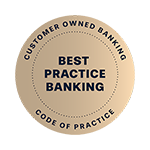Beware of Ransomware
Australian businesses and individuals continue to be the target of cybercriminals using ransomware to take computers and data hostage. Ransomware is a type of malware that prevents a user from accessing their files and in some cases, it can lock a computer entirely.
Ransomware works by locking up or encrypting your files so that you can no longer use or access them. The malicious software can be spread through unsecured websites, email attachments from fake email addresses, links in an email or SMS, links in social media posts, and downloadable applications. This means that ransomware can infect your phone, tablet, or computer.
If your device is infected a message can appear asking you to pay an amount to unlock your device or data. However, paying the ransom does not guarantee they will unlock your device. Instead, it is best to prevent yourself from ever becoming a victim.
You can assist in preventing a ransomware attack on yourself or your business by installing software updates, turning on multi-factor authentication, never clicking on a suspicious link, never opening a suspicious attachment, and by regularly backing up all of your devices and information systems.
Many software companies are continuously identifying weaknesses in their product and supplying updates to patch the exposure. This is why it is important to regularly update your devices to the latest operating software available, and turn automatic updates on where possible.
Multi-factor authentication means there is more than one check in place to prove your identity before you can access your data or account. Having multi-factor authentication is considered to increase your cyber security strength and can reduce the likelihood of someone accessing your data without you knowing.
Suspicious links and attachments might be hard to identify if you haven’t received one before. When in doubt, do not click the link or attachment. One way to identify suspicious links or attachments is to ask yourself if you know the sender, are you expecting them to send you anything, and can you contact them to ask if they sent anything. This includes emails from businesses, unless you are expecting an attachment or an email, do not open them.
Backing up your data is good practice in general because it not only can it protect your data from being lost due to a technical malfunction, it can also protect you from losing your information to ransomware. The best recovery method for a ransomware attack is regularly backing up your files to an external storage device.
If you have ransomware on your device, it is important that you do not pay the ransom. Instead, disconnect all devices from the internet, and call the Australian Cyber Security Centre 24/7 Hotline on 1300 292 371 for assistance.
After disconnecting your devices and speaking to the Australian Cyber Security Centre, please call The Mutual Bank on 1300 388 825 to report the ransomware attack, so we assist with minimising the impact on your business, and take steps so the scammers do not access your business bank accounts.

